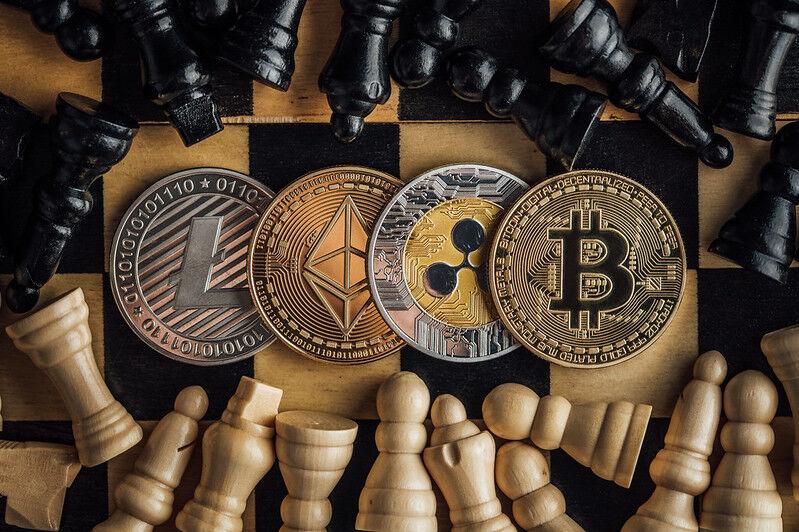Editorial: The viability of cryptocurrency
The ISD Editorial Board discusses the future of cryptocurrency and whether the investment is worth the risk.
July 25, 2021
Editor’s Note: Editorials are representative of the views of all Editorial Board members. One or two members will compile these views and write an editorial.
In an effort to combat the Great Depression and with clear precedent from England, in 1933, President Franklin D. Roosevelt and Congress effectively switched the United States from the gold standard to a system of fiat currency. That is, the U.S. government declared the dollar was no longer valuable because the U.S. Treasury had an equal amount of gold in safes. Rather, the dollar would now be valuable because the U.S. government simply said so.
And so, the system has worked since. The U.S. dollar is a viable form of currency, foreign and domestic, because, and only because, we accept it and know the next person will accept it. It has no backing besides its reputation. Intrinsically, that scrap of paper and ink we all desire is infinitely less valuable than a piece of bread. At least you can eat the latter.
But it works! There’s no denying you can absolutely make purchases with the U.S. dollar, or the Euro or the British Pound.
What, then, is the purpose of physical money? Why do we need a paper bill or metal coin in our hands or bank account to perform a transaction? Why not do things in video game style, where we all get a dollar sign and an associated number above our heads, and when we make a transaction, each party’s number moves accordingly?
That’s an oversimplified explanation of cryptocurrency. Instead of paper and metal, cryptocurrency is manifested as the digital footprint, the ones and zeros, that declare who has how much money. And rather than deriving value from government say-so, cryptocurrency derives its value from the protocols and systems that allow it to exist in the first place. Those are the same systems and protocols that ensure the security and accuracy of each crypto transaction.
So without any physical backing or really any physical anything, is there a future for cryptocurrency, and is it really something we should be actively participating in?
Absolutely! Cryptocurrencies do have a place in the future of the U.S. marketplace, and the technology they run on, blockchain, is just now starting to show its true possibilities. The digital marketplace is undergoing a massive transformation, and now is as good a time as ever to get in on the action.
But, as with all good things, be careful. The novelty of cryptocurrency and other digital monetary transactions can be risky and dangerous if not fully understood. Though it’s “in” now, each cryptocurrency brings no guarantees about its future longevity.
Investing in cryptocurrency is especially risky at the moment given the current volatility of the crypto market. After all, what can be said about the security in investing in cryptocurrencies whose market prices are incredibly dependent on what Elon Musk tweets out in a given hour, as is the case for Bitcoin and Dogecoin?
Be wary of the multitude of ways you can now buy and sell cryptocurrency. The current hype can lead many people into one of many mistakes. Brokerages offering safe, free methods to buy cryptocurrency can turn out to be scammers who are after your credit card or identity. Or, as with many financial institutions, they hide their costs and fees behind enticing offers only to rope you into a deal you were unaware you were agreeing to.
The bottom-line is to do your research. The crypto market is an exciting, ever-changing space. It offers an alluring opportunity to gain wealth that will make anyone want to dip their toes in, if not dive in headfirst. But it’s volatility also threatens to punish even the slightest miscalculation. Now is absolutely the time to make your future in cryptocurrency, but it is absolutely not the time to lose your future in cryptocurrency.

















